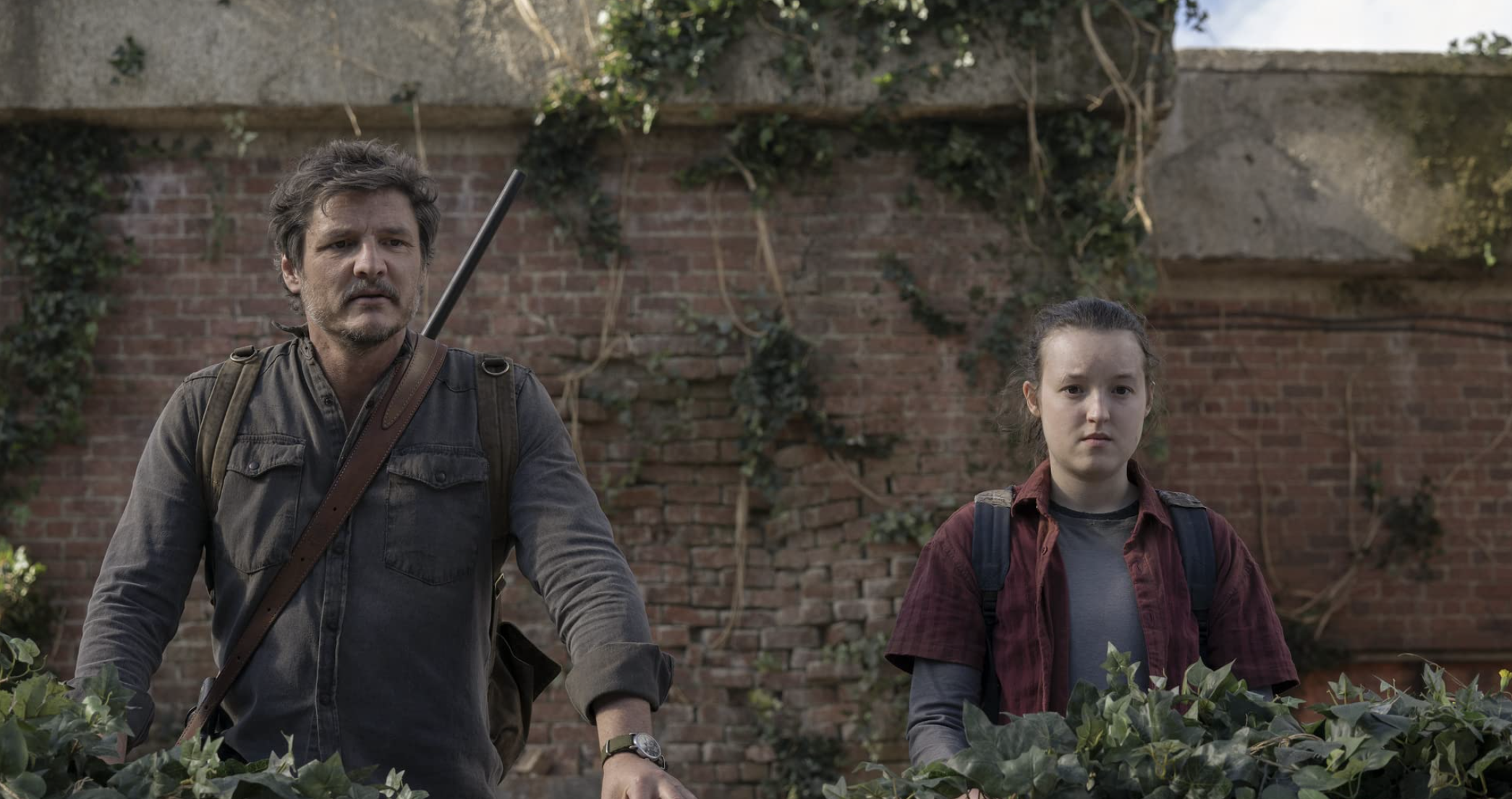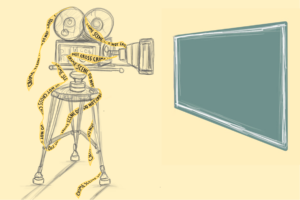Content Warning: This article discusses self-harm and suicide.
Since it began airing this past January, The Last of Us (TLOU) has truly become a juggernaut of the small screen. The HBO Max original series has garnered critical acclaim and millions of weekly viewers. Massive online fandoms have emerged for the show’s stars, Bella Ramsey and Pedro Pascal. Most impressively, its success proves the potential for serious video game adaptations in film and television—a feat that has rarely been achieved in media. TLOU deserves all the praise it is receiving.
However, what’s surprising about TLOU’s success is that the story itself is, frankly, played-out. The series takes place in a post-apocalyptic zombie-ridden America where two survivors, Ellie (Bella Ramsey) and Joel (Pedro Pascal), must brave dangerous conditions and journey far to survive. Sound familiar? Hundreds of movies and television shows have been released adopting the same premise—from blockbuster hits like World War Z (2013) to multi-season-long mainstays like The Walking Dead (2010-2022). What, then, makes TLOU stand out amongst this crowded genre? Perhaps it is the grim realism with which the show treats its setting. Perhaps it’s that the show’s apocalypse powerfully reminds us of our own global multi-year pandemic that lingers to this day. Certainly, these factors are part of the equation. However, the key to TLOU’s success is its profound commitment to its thematic question: What does love look like in a world defined by loss?
Love and loss are hallmarks of the franchise—the original video game exemplified these themes through Ellie and Joel’s pseudo-father-daughter relationship, as both characters have experienced significant loss in their lives and must learn to love one another. Yet, the show also expands upon several minor characters from the original game and introduces subplots for them, some of which encompass entire episodes. The decision to dedicate whole episodes of a short series to mere subplots might seem risky; however, the risk pays off, as these minor characters masterfully illustrate how the apocalypse intensifies romantic emotions as well as familial ones, contextualizing Ellie and Joel’s complex relationship.
Take, for example, Episode 3, “Long, Long Time,” which presents the love story between Bill (Nick Offerman) and Frank (Murray Bartlett), the only two survivors of the apocalypse in a small Massachusetts town. In the game, Bill is a very minor character who briefly helps Ellie and Joel on their journey, and his partner, Frank, has already committed suicide by the time we meet Bill. Episode 3, however, shows us the lives of Bill and Frank before meeting Ellie and Joel. Bill was a neurotic doomsday prepper who spent the years following the apocalypse secluded in his own home. Although he lived a comfortable life, the many years he spent alone left him emotionally lost—that is, until the arrival of Frank. Together, Bill and Frank forge a new life for themselves, and Bill learns to accept and reciprocate Frank’s love for him. In the end, as Frank—satisfied with the many happy years he had before losing his mobility to a neurodegenerative disease— chooses to end his life, Bill decides to end his own life alongside his lover. On its own, Episode 3 is a moving story of genuine love existing in a lonely world, and it stands out as a phenomenal hour of television as a result. In context of the whole season, Bill’s devotion towards Frank is also meant to represent the relationship that Joel will develop with Ellie. This not only justifies the episode’s existence but also enhances the entire show’s emotional depth as well.
Bill and Frank’s peaceful ending, however, is an outlier in the apocalypse. As such, TLOU showcases the darker, violent, vengeful kind of love which is all the more common when death and destruction lurk around every corner. Vengeance is, in fact, the focus of Episodes 4 and 5, titled “Please Hold My Hand” and “Endure and Survive,” respectively. After weeks of travel, Ellie and Joel stumble upon the Kansas City Quarantine Zone, where its residents have violently overthrown FEDRA, the authoritarian government that once oppressed the city. As Ellie and Joel attempt to stay out of the crossfire, we are introduced to the demagogic leader of this revolution, Kathleen (Melanie Lynskey).
Kathleen is a completely original character of the show. She is soft-spoken and unassuming, yet absolutely relentless in pursuing vengeance against FEDRA and its sympathizers. Chief among her targets is Henry (Lamar Johnson), the man who betrayed her revolutionary brother and caused his death. Yet, after Ellie and Joel meet Henry and his eight-year-old brother Sam (Keivonn Montreal Woodard) in Episode 5, we hear the other side of the story. Henry was once a revolutionary too, but after Sam became ill with leukemia, he was forced to betray the cause to FEDRA to receive the necessary treatment for Sam. Henry laments his part in the death of Kathleen’s brother, but feels it was necessary to save Sam, and now must escape the city to protect him once more.
Kathleen and Henry are such intriguing characters because their diametric opposition to one another does not change the fact that their motivations come from the same source—the familial love they had for their brothers. For Henry, his bond with Sam and the prospect of losing him motivates him to betray his morals and sacrifice his friends. For Kathleen, the loss of her brother fills her with such vengeance that she kills anyone she sees as responsible, becoming the kind of tyrant she once resisted. Tragically, both characters’ stories end in destruction—after cornering Henry and Sam on the outskirts of the city, Kathleen and her army are overrun by a swarm of zombies, and Henry commits suicide after Sam is infected in the mayhem.
Critically, Kathleen and Henry’s selfish and ruthless love foreshadows the dark path that Joel takes in the season finale, “Look for the Light.” By this point in the season, Joel and Ellie have forged an incredibly strong bond with one another, having survived a perilous cross-country journey together. But after completing their mission to deliver Ellie to doctors who can study her immunity to the zombie plague, Joel discovers that they plan to end her life to create the cure. Despite the fact that Ellie’s sacrifice is for the greater good, Joel is forced to face losing her just like he lost his daughter, and is overcome with emotion that clouds his judgment. He massacres almost everyone in the hospital, including the doctors capable of making a cure, and “rescues” Ellie.
Joel’s decision is a bittersweet tragedy for the audience—he has saved Ellie once more, but in the process killed scores of people and doomed humanity to a permanent hellish apocalypse.
Then again, can you blame him? Having held your dying daughter in your arms once before, could you willingly allow that to happen again? Watching Joel kill countless people in cold blood all to save Ellie forces the audience to question whether their heart harbors the same selfish love that Joel chooses to release.
A lot of viewers might have gone into TLOU expecting another typical zombie apocalypse series. Some may have even been disappointed at the sparse action scenes and minimalist horror. By deemphasizing these aspects of the genre, though, TLOU has managed to craft a deeply profound exploration of companionship and devotion that exists in spite of its setting. The genre has not been a crutch for the show to rely on, but a tool to tell its story. With a second season already in the works, we can only hope for storytelling that rivals Season 1’s level of artistry.




